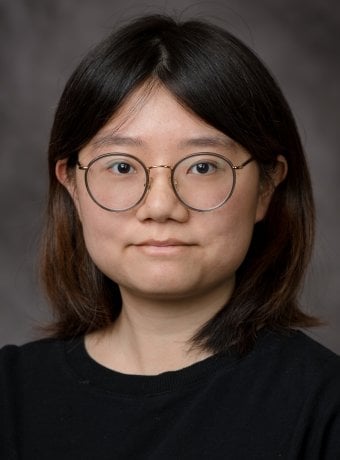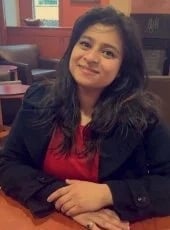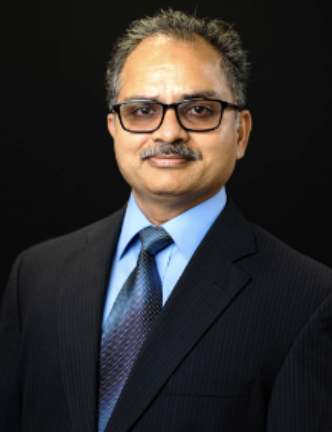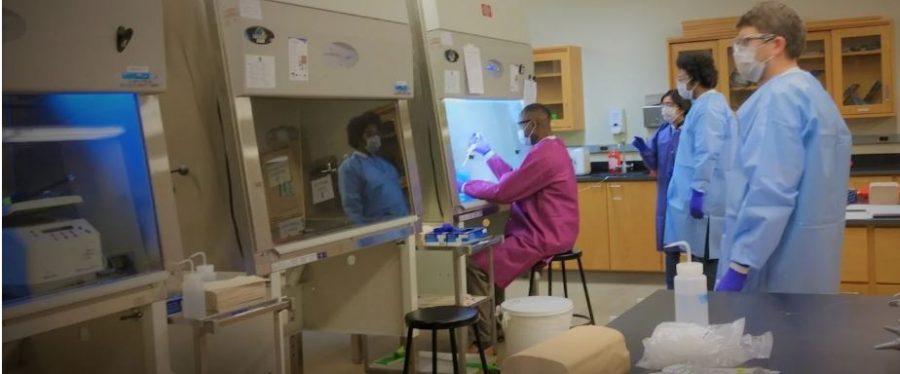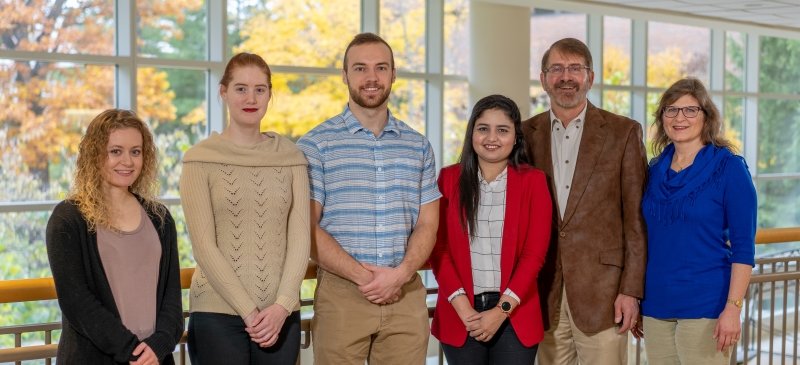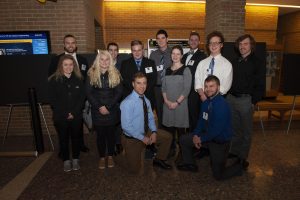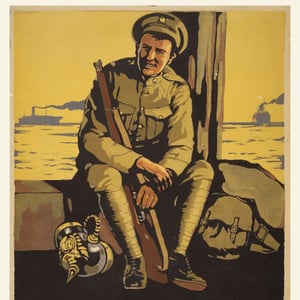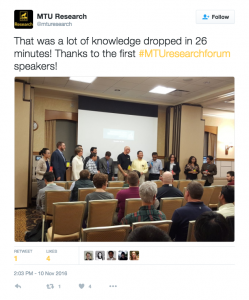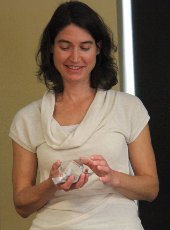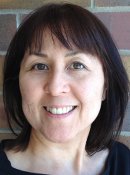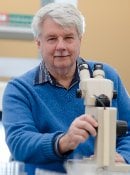The College of Sciences and Arts congratulates the recipients of the Songer Research Award for Human Health for the 2024-2025 academic year cycle.
- Xinqian Chen (PhD student in Integrative Physiology), project titled “Exploring the role of brain-derived extracellular vesicles in salt-sensitive hypertension”;
- Vaishali Sharma (PhD student in Biological Sciences), project titled, “Antiviral efficacy of amino acid-based surfactants: A proposal for advancing human health by breaking the chain of viral infection.”
“Chen and Sharma proposed innovative medically-oriented research projects in human health,” said Dean LaReesa Wolfenbarger. “Their projects are exciting, potentially improving human life and health outcomes. I look forward to learning more about their findings in the coming months. And I appreciate the generosity of the Songers for making these research opportunities possible for these exceptional graduate students.”
Xinqian Chen to Make Impact on Hypertension Research
Chen proposes to test the hypothesis that injection of brain extracellular vesicles (EV) harvested from rats with salt-sensitive hypertension will result in hypertension with neuroinflammation and oxidative stress in cardiovascular control regions of otherwise healthy rats. EVs are lipid bilayers released by cells and carry proteins, nucleic acids, and metabolites to transmit signals between cells. Chen’s proposal exhibits promising connections to human health. Strong preliminary data isolating and characterizing brain EVs and their influence in cultured cells and cardiovascular control regions of the brain demonstrate a high likelihood of success with the project. Jenny Shan (Kinesiology and Integrative Physiology) serves as Chen’s advisor.
Vaishali Sharma Seeks to Eliminate Harsh Chemicals
By lowering reliance on harsh chemical disinfectants, Sharma’s proposal seeks to identify sustainable amino acid-based antiviral surfactants with the potential for effective performance and minimal negative effects on human health and the environment. Sharma plans to evaluate the antiviral efficacy and toxicity of amino-acid-based surfactants, with a strong connection to human health. If Sharma’s proposal is successful, a more ecologically friendly surface disinfectant could be made available. Stephen Techtmann (Biological Sciences) and Caryn Heldt (Health Research Institute) serve as Sharma’s advisors.
Songer Research Award for Human Health Celebrates 7 Years
For seven years, Matthew Songer ‘79, BS Biological Sciences and Laura Songer ‘80, BS Biological Sciences have generously donated funds to the College of Sciences and Arts to support a research project competition, the Songer Research Award for Human Health. The Songers’ gift supports two graduate awards of $6,000 each. Conducted over the Summer of 2024 and/or the following academic year, students pursue research in consultation with faculty members within the College of Sciences and Arts.
The Songers fondly recall their excitement to engage in research. As a result, the Songers established the award to stimulate and encourage opportunities for original research by current Michigan Tech students. The College is grateful for the Songers’ continuing interest in, and support of, Michigan Tech’s programs in human health and medicine.
About the College of Sciences and Arts
The College of Sciences and Arts strives to be a global center of academic excellence in the sciences, humanities, and arts for an increasingly technological world. Our teacher-scholar model provides the foundation for experiential learning, innovative research and scholarship, and civic leadership. The College offers 33 bachelor’s degrees and 25 graduate degrees and certificates. The College conducts approximately $12,000,000 in externally funded research in health and wellness, sustainability and resiliency, and the human-technology frontier.
Follow the College on Facebook, Instagram, X and the CSA blog. Questions? Contact us at csa@mtu.edu.
